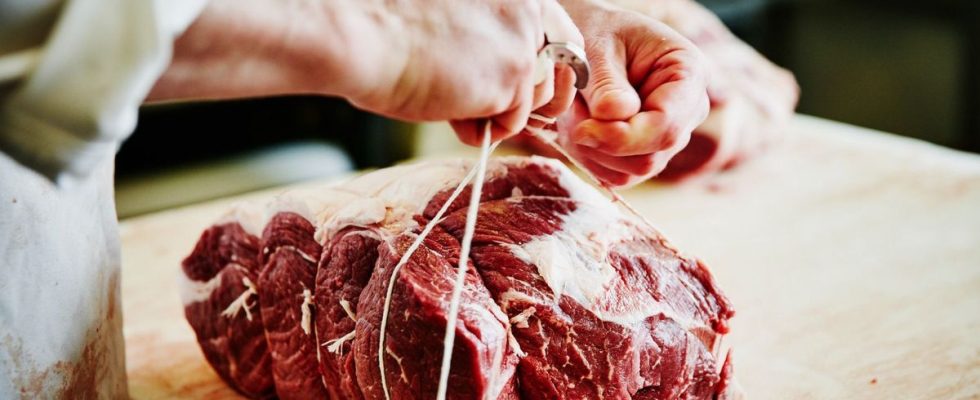Published on
Updated
Reading 2 mins.
According to a new survey, more and more French people seem to be shying away from meat. What are their new eating habits? How do they want to consume in the future? Answers.
A few days before the National Assembly’s examination of the “Better Eating” bill, Harris Interactive and the Climate Action Network publish their barometer on French meat consumption and their expectations vis-à-vis the public authorities. . He reveals that more and more of them are reducing their consumption of beef, pork or chicken.
57% of French people say they have reduced their meat consumption
The survey, carried out from March 10 to 14 with a sample of 1,078 French people, reveals “that 57% of French people say they have reduced their meat consumption in the last 3 years“, And “39% want to reduce it in the next 3 years” (i.e. 9 points more than in 2021).
If the desire to save money comes first – eating a steak or a roast chicken has become too expensive for the majority of French people (58%) – 45% of them justify this choice for ecological reasons.
“The effects of meat on health and the environment are increasingly well known. The French are also realizing that they don’t have to eat meat every week, or every day, to stay healthy. What the survey also reveals is that they find it difficult to eat less, but of better quality. There is indeed a real lack of organic and sustainable meat in supermarkets“, admits Benoit Granier, Food Manager Climate Action Network.
Changing eating habits
As far as eating habits are concerned, more and more French people seem to be seduced by pulses.
In fact, to compensate for the supply of nutrients from the meat, “they would favor pulses and legumes (80%), cereals and seeds (78%) and minimally processed foods (59%) made from them“, reveals the survey.
“Whole grains and legumes are perceived as a good source of nutrients“, confirms the expert.
On the other hand, algae still seem to frighten a good part of the French (41%) while highly processed preparations (35%), synthetic meats (26%) and insects (21%) represent solutions that are still little considered for the moment.
“Synthetic meats – cellular or artificial – are still frowned upon by the French. On the other hand, plant substitutes appeal to a good part of them, even if they are not all good for the health, because sometimes ultra-processed“, concludes the expert.
Finally, French households, both well-to-do and working-class, are overwhelmingly in favor of proactive public policies in favor of sustainable food characterized by “less and better” of products of animal origin.
Thus, 85% of French people expect measures aimed at limiting the presence of intensive farms, while state support for sustainable farms is desired by 90% of French people.
